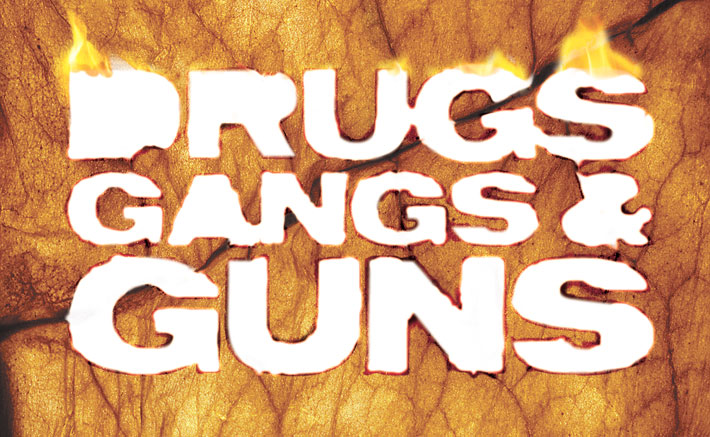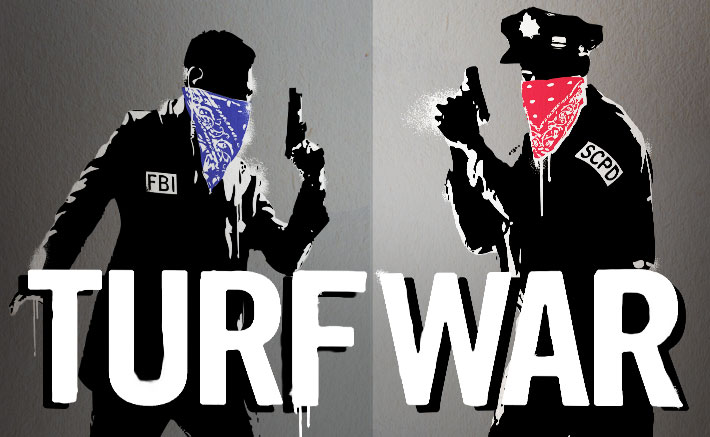
SMOKED OUT
Relations between the Unkechaug have been touchy since cash-strapped Suffolk, like New York State, renewed interest in collecting taxes from shops on Poospatuck that sell cigarettes to visitors—taxes the tribe says that don’t apply due to its sovereign rights.
The tribe has a pending federal lawsuit against the county, the police, Spota and a host of other officials for what it describes in the complaint as “a pattern and practice of law enforcement that systematically discriminates against the Unkechaug Indians who reside on the Poospatuck Reservation.” Specifically, the suit alleges that Suffolk police have conducted what the tribe describes in court documents as a “blockade” outside entrances to the reservation in December 2008 and April 2010—accusations the county denies.
The county is countersuing the tribe for sales taxes it claims it is owed from the years of tax-free cigarette sales on the reservation.
Also alleged in the tribe’s suit is that the county and New York City “have taken matters above and beyond the scope of ordinary litigation with the ultimate goal to discriminate against and destroy the Unkechaug Indian Nation.” Mayor Michael Bloomberg went so far as to send undercover investigators to Poospatuck to document what he alleged are the illegal sale of tax-free cigarettes to non-Indians that he and state officials say are being resold in the city.
The Unkechaug had joined other Indian nations across New York in suing the state in an attempt to block collection of cigarette taxes on sales to non-Indian customers, but the courts sided with the state, despite prior attempts that sparked riots on upstate reservations in the early ’90s. Collecting excise taxes on cigarettes made by tribes, which makes up much of what is sold in tribal smoke shops these days, is a murkier, unsettled issue.
The legal pressure on Poospatuck is evident at the smoke-shop counters. Prices have nearly doubled in recent months on Native American-brand cigarettes, which make up the majority of butts sold, since Phillip Morris USA began cutting off wholesalers delivering to shops in an effort to stem alleged bootlegging.
“Due to legal matters with New York State we have been forced to raise our prices,” reads a sign hanging on a wall in one smoke shop, where a carton of Seneca brand cigarettes made on the upstate reservation have increased from $25 to $45 since this spring.
Regardless of the outcome of the ongoing cigarette tax controversy, Suffolk authorities would still exercise jurisdiction over Poospatuck—unlike much of Indian County out west, where the feds are the only force sporadically supplanting oft-outmanned tribal police. Earning federal recognition, such as Shinnecock did last year after a 30-year legal battle, would not change that, either.
On many of the 281 federally recognized reservations spread across 34 states, jurisdiction for offenses committed depends upon whether the suspects and victims are Indians, whether the crime is a felony or a misdemeanor, and whether the crime violates tribal, state, or federal law. But in New York, which has 10 reservations—four of which are federally recognized—local law enforcement has more involvement on some native territories, except for some larger upstate reservations. And some upstate native lands attract far more police attention than LI tribes.
The 21,000-acre Akwesasne-Mohawk Indian Reservation on the Canadian border in northern New York, for example, is dubbed “The Black Hole” for incidents of speed-boat-driven drug-trafficking that have frustrated federal investigators on both sides of the St. Lawrence River. [The federal Drug Enforcement Agency made a $3 million bust there in 2008.]
Poospatuck’s Indian Creek smoke shop is back in business, competing with the other vendors. Boats fill the docks along the reservation’s riverfront. Having recently wrapped up the annual June tribal meeting, locals now look forward to the fall festival at Shinnecock.
Despite their differences, both the Unkechaug and Suffolk’s lawmen are happy this latest flare-up on the reservation has finally faded into the sunset.
“I think they were appreciative that these people, who shouldn’t have been on the reservation, are now gone, because there only would have been more violence,” says Spota.
Harry Wallace, the Unkechaug’s recently unseated chief, concurs: “I’m glad that the people who were responsible for that are being brought to justice.”




